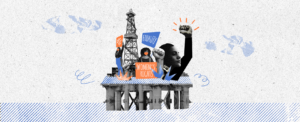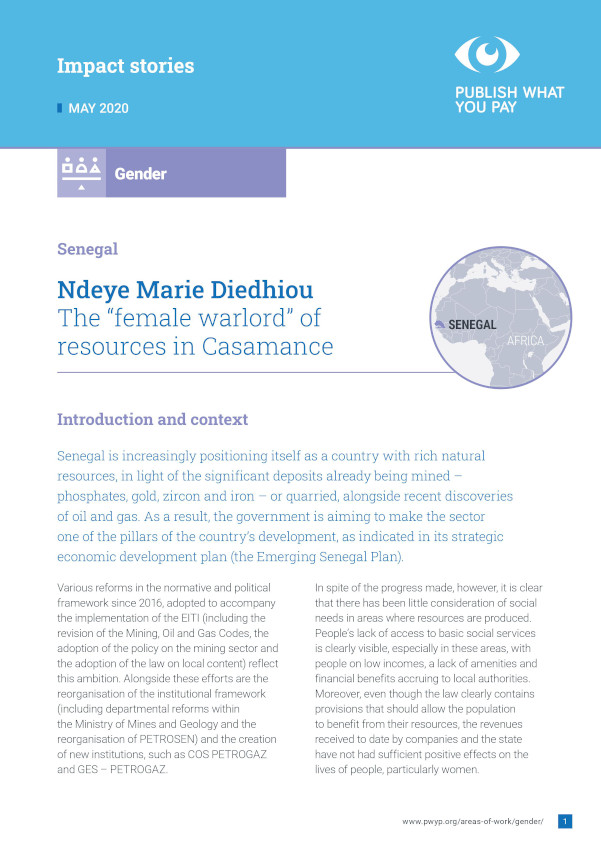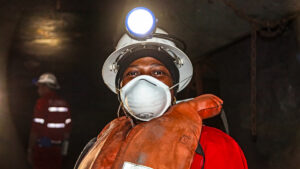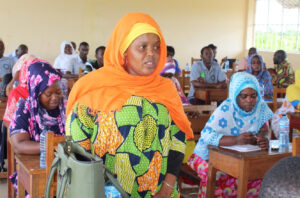
PWYP Global Gender Policy
PWYP commits to taking on a feminist perspective in everything we do. We understand this to mean working to uphold the rights and dignity of all people regardless of their sex, gender, race, age, class, ability or other social identifiers. We strive to foster a culture of inclusivity, respect, and equality that embodies our commitment…
Read Download

